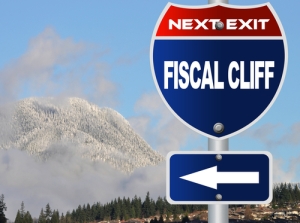The ever-growing movement to repeal the very controversial Monsanto Protection Act has garnered the support of both the Tea Party and the green movement, thereby breeding strange bedfellows. The Monsanto Protection Act “allows Monsanto and other companies to continue selling genetically engineered seeds, even if a court has blocked them from doing so”. [1] In recent months, federal courts have ruled against the Department of Agriculture, who approved the sale of genetically engineered seeds, stating that the agency acted hastily in their approval, without giving careful consideration to the seeds’ “potential harm“. In response to these rulings, the seed industry lobby fought back and was successful in attaching the Monsanto Protection Act as a resolution to the spending bill signed into law in March. Sen. John Tester (D-Mont.) took note of the rider and spoke out against it on the Senate floor. Unfortunately, his voice fell on a typically empty floor, resulting in Tester’s failure to garner enough votes to block the passage of the rider. This bill then was signed by President Obama as a part of the massive spending bill.
Now we see true activism at work. Many conservatives, namely the Tea Party, are voicing opposition to the Monsanto Protection Act, particularly on the underhanded way this resolution was passed. Of course, proponents of the green movement are opposed to the Monsanto Protection Act based on environmental and health concerns. [2] While the reasons for opposition of the Monsanto Protection Act may vary in that the Tea Party opposes “the special interest loophole for friends of Congress” [3], and the green movement opposes GMOs [2], the opposition itself reflects a coalition unencumbered by politics. The goal here is a unified one: namely to repeal the Monsanto Protection Act.
Such activism is refreshing in this current toxic and partisan political atmosphere, which typically results in gridlock and ineffective action or inaction. We now see the potential power of the people at work. The Monsanto Protection Act is a bad deal on so many fronts. We need a united stand to repeal this act. We here at LGBG urge our readers to contact your senator (see list below) [4] and voice your opposition to the Monsanto Protection Act. To do so is to live green, be green.
Sources for this article:
1. http://www.huffingtonpost.com/2013/04/02/monsanto-protection-act-tea-party-partiots_n_3000073.html.
2. http://livegreenbegreen.com/2013/04/25/the-power-of-seeds-the-main-ingredient-to-sustain-life/.
3. http://www.huffingtonpost.com/2013/05/16/jeff-merkley-monsanto-repeal_n_3288209.html?utm_hp_ref=green&ir=Green.
4. http://www.senate.gov/general/contact_information/senators_cfm.cfm.





